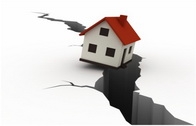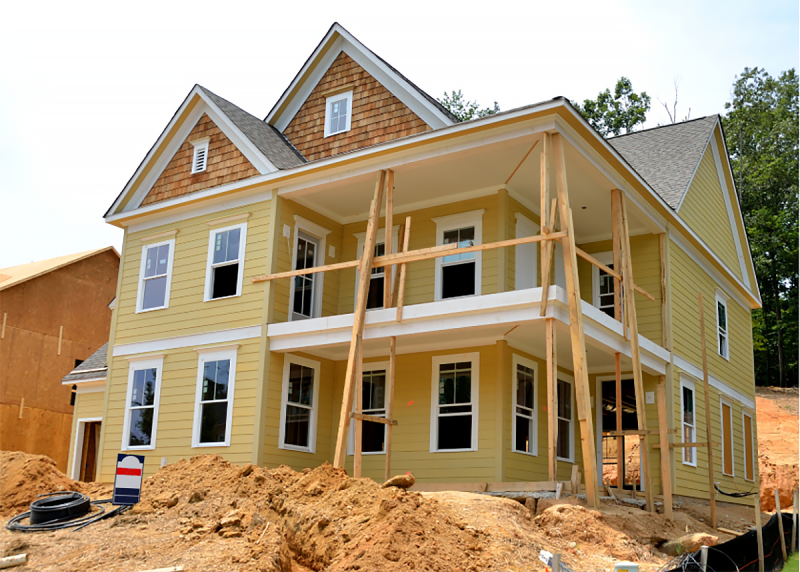Advertisement
Pessimism Still Exists When It Comes to Housing Market Recovery

Trulia and RealtyTrac have released the latest results of an ongoing survey that has tracked American attitudes toward foreclosed homes since 2008. Harris Interactive conducted this online survey on their behalf from April 15 to 19, 2011, among 2,018 U.S. adults aged 18 and over. As more cities across the nation experience double dips in home prices, 54 percent of U.S. adults believe recovery in the housing market will not happen until 2014 or later, according to the Trulia/RealtyTrac survey. In a previous survey conducted six months ago, 42 percent of American adults said they thought the market would turn around by 2012 or had already turned around. Now, only 23 percent continue to think this will happen.
“Most Americans, as our latest survey revealed, overestimated how quickly the housing market would bounce back, but when it does, it will likely be a long and gradual process. Looking at the recent double dips in home prices, I expect the rest of 2011 to be volatile for real estate,” said Pete Flint, co-founder and chief executive officer of Trulia. “On the flip side, mortgage rates won’t stay low forever and even if home prices continue to fall for a bit, now is still a good time to enter the housing market. In my eyes, we have another 18 months until we start to see signs of price stability in the housing market.”
When American Adults Believe Housing Market Will Recover
April 2011
November 2010
% Change
Already Recovered
5%
5%
0%
By the end of 2011
3%
10%
-70%
2012
15%
27%
-44%
2013
24%
24%
0%
2014 or Later
54%
34%
59%
"Our survey reflects a growing perception among potential homebuyers that the housing recovery is still a long way off," said Rick Sharga, senior vice president of RealtyTrac. "Demand remains weak, loans are increasingly difficult to qualify for, and the shadow inventory of several million distressed properties is weighing down the market. All of these things need to improve before housing can recover."
With recent reports criticizing the underperformance of the Obama Administration’s Home Affordable Modification Program (HAMP) and the Home Affordable Foreclosure Alternatives Program (HAFA), Republicans are increasingly adamant about repealing these initiatives entirely. This debate appears to run contrary to what Americans ask of their government as the housing market struggles to recover. According to the survey released today, 45 percent of American adults say the government is not doing enough to prevent foreclosures. Only 17 percent say too much is being done while 16 percent say they are doing the right amount and 22 percent say they are not sure.
The widespread prevalence of distressed homeowners facing foreclosures in today’s market is one reason why negative sentiment toward the government may be so high. Almost one-third (30 percent) of homeowners self-reported that they have or know someone who has applied for or received a loan modification, stopped paying their mortgage, foreclosed, walked away or short sold their home.
Personal Knowledge of Distressed Homeowners Among American Adults
Total
Homeowner
Renters
Applied/Received Loan Modification
14%
16%
10%
Stopped Making Mortgage Payments
11%
14%
5%
Lost Their Home to Foreclosure
11%
12%
8%
Walked Away From Their Home
8%
9%
5%
Sold Their Home Via Short Sale
5%
6%
5%
Net Total
26%
30%
19%
More than half of U.S. renters (56 percent) and 47 percent of current homeowners are at least somewhat likely to purchase a foreclosed home. Along with having some concerns about hidden costs, a risky buying process and loss in home value, many potential buyers expect to save money if they buy a foreclosure versus a similar non-foreclosed home. In fact, American adults expect to pay 38 percent less for a foreclosed home than a similar home that was not in foreclosure—not too far above the average discount of 36 percent on sales of real estate-owned (REO) properties compared to sales of homes not in foreclosure reported in the RealtyTrac 2010 Foreclosure Sales Report.
Expected Discount for Buying a Foreclosed Home vs. Similar Non-Foreclosed Home
Total
Homeowner
Renters
No Discount
2%
2%
3%
1 to 15% Less
8%
8%
6%
16 to 29% Less
23%
23%
23%
30 to 49% Less
30%
31%
30%
More than 50% Less
36%
35%
39%
About the author




